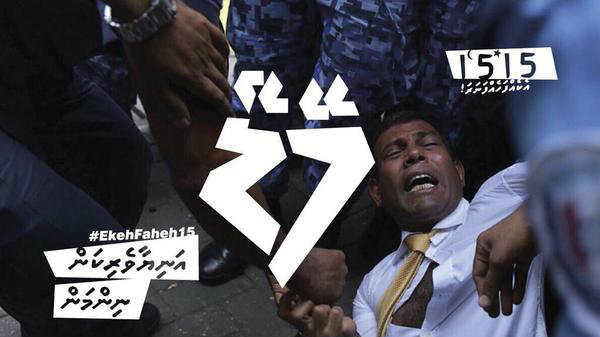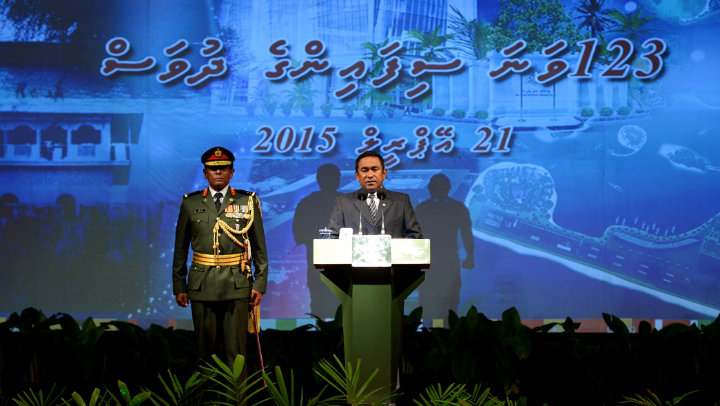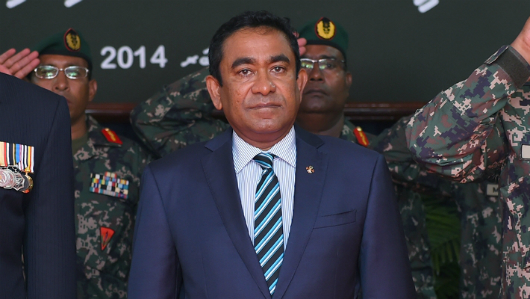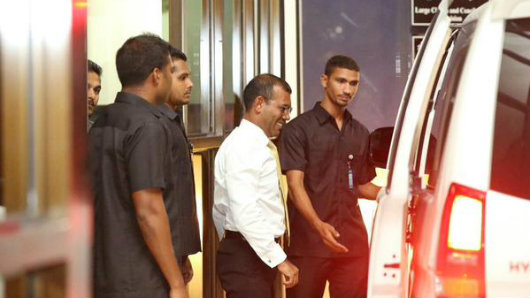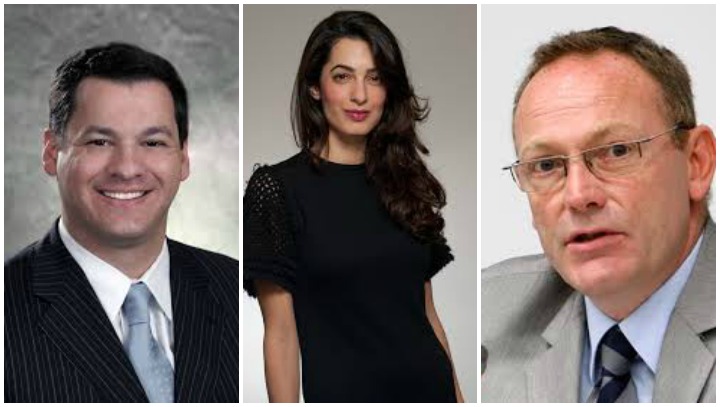Former president Mohamed Nasheed’s lawyer say he is being kept in an isolated and filthy cell at a maximum security prison, but the home ministry maintains Nasheed is treated as a VIP and given special comforts.
Following a visit with the opposition leader at Maafushi Island jail on Tuesday, lawyers said the ex-president’s cell is adjacent to the prison garbage dump and is infested with flies and mosquitoes.
Nasheed, who is serving a 13-year sentence on terrorism, is forbidden from exercising, while the food is “barely edible.”
“The cell is situated far from the main prison and other inmates –nobody would be able to hear President Nasheed should he call out for help,” lawyers said.
Nasheed’s family and the main opposition Maldivian Democratic Party have repeatedly expressed concern over alleged plots by the government to assassinate the opposition leader. But the government has dismissed the allegations as slanderous and baseless.
Meanwhile, Nasheed’s international legal counsel Jared Genser described the conditions in which Nasheed is held as “cruel, inhumane and degrading treatment” in violation of international anti-torture laws.
President Abdulla Yameen and home minister Umar Naseer may be “held legally responsible for the use of torture – we will take all necessary measures to hold the government to account for this treatment,” he added.
Nasheed was transferred to Maafushi Jail, on an island three hours from the capital, last week from a minimum security prison. Lawyers alleged security officers threatened to use force against Nasheed when he asked for time to pack before the transfer.
Speaking to Minivan News, a home ministry official said Nasheed “is afforded benefits no other prisoner receives.”
The opposition leader is allowed to see seven members of his family for two hours every week and he is given a ten minute phone call with his family for ten minutes every week, spokesperson Thazmeel Abdul Samad said.
Other prisoners are only afforded one family visit a month and one phone call a month.
Nasheed is given a menu to choose mildly-spiced meals and include fruits on the doctor’s advice. The special apartment has a flatscreen TV, a refrigerator, he continued.
The former president is allowed to read books sent by his family, and there are always a team of security guards within eyesight if he needs any help, said Thazmeel.
Nasheed’s arrest has sparked international outrage, with the European Union parliament today passing a resolution urging the government to release the former president immediately.
The resolution also calls on European countries to warn tourists on Maldives’ human rights record on their travel advice websites.
The opposition is meanwhile planning a 25,000 strong march in Malé tomorrow over Nasheed’s jailing and ex-defence minister Mohamed Nazim’s imprisonment.
The government has labeled the rally as an attempt to overthrow President Abdulla Yameen, but opposition coalition insists the demonstration will be peaceful.

